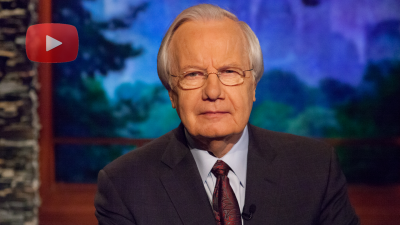
CHESTER, WV AUG 18: Some Confederate flag representations are being seen more often these days because of what has been labeled, "The Trump Effect." Flying the flag in some places was once a political risk but in the Trump era more angry white Americans are using the flag motif as a protest vehicle and not concerned that it might represent painful imagery to some Americans. -These paired flags, The Confederate Flag and a Trump M.A.G.A. flag fly along the Lincoln Highway near a video store in Chester, West Virginia. -Many reject that the flag is a symbol of hate and claim that it's a symbol of rebellion and a rebuke of political correctness. (Photo by Michael S. Williamson/The Washington Post via Getty Images)
History shines a light on earlier periods of authoritarianism and their connection to the present, making it more difficult to assume that fascism is merely a relic of the past. Memories of terror are not only present in the rise of white supremacist demonstrations of hate and bigotry that have taken place in a number of cities. They are also present in Trump’s waging a culture war against civil disobedience, admonishing NASCAR for banning the Confederate flag at all events and properties, and attacking NASCAR’s only Black driver Bubba Wallace for falsely reporting a hate crime, which he personally did not report.
Echoes of a poisonous past are also present in the current staffing in the White House, which is home to white supremacists such as Stephen Miller, who is a high level adviser to Trump and is viewed by many as the architect of his draconian immigration policies. Miller’s white supremacist views were on public display when more than 900 of Miller’s emails were leaked by former Breitbart editor Katie McHugh. Among the trove of emails, Miller commented on and provided reference to white nationalist websites such as VDARE and celebrated the racist novel, “The Camp of the Saints.”
According to Jared Holt, an investigative reporter at Right Wing Watch, he “also reportedly espoused conspiracy theories about immigration, backed racist immigration policies introduced by President Calvin Coolidge that were praised by Adolf Hitler, and deployed slang popular in white nationalist circles to reference immigration.” Judd Legum argues that Miller also “obsessed over the loss of Confederate symbols after Dylann Roof’s murderous rampage,” a view that may have later shaped Trump’s doubling down on protecting Confederate monuments.
In spite of a barrage of calls from a number of politicians calling for Miller’s removal from the White House, Trump held firm reinforcing the widely accepted notion that Trump is a white nationalist entirely comfortable with white supremacist ideology. Since Trump waged a presidential campaign using the language of white nationalism, it is not surprising that he brought such extremists views into the White House.
Of course, removing Miller would not change much. Miller is not the main white supremacist in the Trump administration. Nor can his presence hide the fact that white supremacy has been a staple of the Republican Party for decades, evident in the history of and contemporary presence of high profile Republican politicians such as Strom Thurman, Jeff Sessions, former representative Steve King, Tom Tancredo, and Dana Rohrabacher. Moreover, the long legacy of white supremacy in the United States should not undercut the distinctiveness of Donald Trump’s white supremacist views which he wears like a badge of honor while escalating and normalizing white supremacist sensibilities, practices, and policies unlike any president in modern times. His scapegoating of minorities and demonization of politicians, athletes, and other critics of color reflects more than a divide-and-rule strategy, it is an updated strategy for mainstreaming the death-haunted elements of fascism.
Fascism has deep roots in American history and its nativist legacy and anti-intellectualism have always incorporated notions of racial cleansing, the dehumanization of other groups, and an embrace of white nationalism and supremacy. This legacy lives on in different forms in Trump’s view of America. How else to explain not only Trump’s embrace of birtherism, racist anti-immigration policies, his public support for right-wing groups marching on state capitals protesting COVID-19 restrictions, and his appropriation of the early 20th century nativist and pro-fascist slogan “America First”?
More recently, he used the vast reach of his social media platforms to retweet a video to his millions of followers in which a man at a retirement community riding in a golf cart bearing “Trump 2020” and “American First” signs yells the racist phrase “white power!” at a group of counter protesters. Michael D. Shear writing in the Washington Post states that while Trump later deleted the video, “he did not condemn the ‘white power’ statement or specifically disavow the sentiment expressed by his supporters.” A few days later, as if he wanted to reinforce for his base his obsession with violence, white supremacist brutality, and his deep disdain for the widespread protests over racial violence and police violence he retweeted a video of a white man and woman brandishing a semi-automatic rifle and a handgun at peaceful black protesters in St. Louis.
What Trump relentlessly affirms whenever he addresses matters of race reinforces James Baldwin’s argument that “White is a metaphor for power.” How else to explain Trump’s comment that “people love” the Confederate battle flag, and that it has a place in American society because it’s about freedom of speech, as if its legacy as a symbol of slavery and the fact that it is a racist, painful and hurtful symbol to Black Americans did not matter. Trump does not simply deny a deep seated and residual racism in America, he embraces it as a national ideal.




